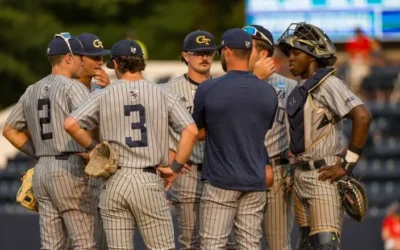In the ever-evolving landscape of American politics, few Democratic figures have emerged to challenge the narrative surrounding Donald Trump with more tenacity than Representative Jasmine Crockett. Known for her unapologetic stance against Trump and his policies, Crockett has become a prominent figure in the House of Representatives, advocating for justice, equity, and accountability.
However, recent reports reveal an intriguing twist: several Republicans have been approaching her with messages that range from shocking to downright incredulous. As the political climate continues to shift, these interactions could shed light on the Republican Party’s evolving fears and strategies in the post-Trump era.
The Shocking Encounters
According to Crockett, members of the Republican Party have been reaching out to her with a confusing mix of cordiality and desperation. “The things they say are almost unbelievable,” she noted in a recent interview. “It’s as if they are gauging my response to ideas that would have been unacceptable just a few years ago.” She went on to describe how some Republicans seem genuinely concerned about the future of their party and the continuing influence of Trump.
What Are They Saying?
While details of the conversations remain under wraps, Crockett hinted that these messages often involve overtures for bipartisanship, especially on issues like criminal justice reform and healthcare. This approach may seem counterintuitive at first, given that Trump remains a polarizing figure, yet it illustrates a critical juncture for the Republican Party.
“They’re scared,” Crockett asserted, arguing that the fear of Trump’s influence over their party has made some Republicans reevaluate their political strategies. “It’s not just about winning elections anymore; it’s about the survival of their party as a credible entity on the national stage.”
Is There a Need for Bipartisanship?
In theory, bipartisanship can lead to more comprehensive solutions to the nation’s most pressing problems. However, the real question is whether those overtures are genuine or simply a strategic dance designed to appease constituents who are increasingly dissatisfied with extreme positions.
As 2024 looms larger on the horizon, the stakes are high for both parties. The Republican Party, under the continued influence of Trump and his supporters, faces internal fractures that could splinter their base and result in losses during key elections. Meanwhile, Democrats, including the likes of Jasmine Crockett, are eyeing opportunities to build coalitions, particularly on issues within the general public’s interest.
The Media’s Role in Political Narratives
In recent discussions with the media, particularly around figures like Jim Acosta, the narrative has shifted to emphasize the perceived fear among Democratic leaders of a potential Trump resurgence. This comes with an unsettling undercurrent suggesting that political motives could pivot toward self-preservation on both sides of the aisle.
According to Acosta’s reports, which have sparked significant debate, Crockett and others are worried that Trump’s return to the political forefront could translate into personal consequences for their opposition. “It’s not unfounded paranoia, given the climate we’re in,” Acosta posits. “For Democrats, the fear is genuinely that the past will repeat itself, with unprecedented attacks on their character and integrity.”
Crockett’s Perspective
For Crockett, the notion that she finds herself amidst Republican advances, seeking dialogue, is as thought-provoking as it is ironic. “I stand firmly against what Trump stands for, but I also recognize that there are individuals in the Republican Party who may not align with his extremist views,” she stated passionately.
Despite this potential for collaboration, she expresses disappointment that others in her party might be overly cautious. “We have to be willing to engage with those willing to listen. But we also have to be vigilant. A leopard doesn’t change its spots overnight, and we shouldn’t trust too readily that their intentions are altruistic.”
The Fear Factor
The real question is not merely whether Crockett will be tossed into the proverbial political slammer by Trump but whether the fears propagated through deep partisan lines can ever be reconciled. As Trump continues to wield his influence—whether through rallies, endorsements, or social media—both parties are re-evaluating their strategies.
This climate of fear and suspicion fosters an environment where political paralysis can occur, even as issues urgently beg for solutions. The lingering question is whether those in the GOP willing to reach out are genuinely ready to forge paths that diverge from the ideological lines drawn by Trumpism.
A Path Forward?
As the nation looks toward future elections, both parties must confront the stranglehold that extreme views and partisanship have held over the political dialogue. For Crockett, the road ahead is as rocky as it is promising. “I hope that these conversations aren’t just smoke and mirrors; I hope they lead to something substantive,” she declared.
Engaging in political discourse is essential for a functioning democracy, yet it requires a willingness to be transparent, sincere, and committed to the common good. Crockett’s openness to dialogue challenges the extreme rhetoric often found in today’s political framing and aligns her with a vision of governance that eschews division in favor of unity, even with ideological opponents.
The Next Chapter
For Jasmine Crockett and others like her, navigating this complicated landscape requires both courage and conviction. The Republican overtures could signify a shift in political tactics fueled by internal fears about Trump’s staying power and the broader implications for American democracy.
As we move toward 2024 and beyond, we’ll need to keep a watchful eye on these interactions and their potential to reshape the conversation in Washington. Are the Republicans genuinely searching for common ground, or are they merely attempting to mitigate their losses amid a changing political tide? Only time will tell. What remains certain is that figures like Crockett will be at the forefront, pushing for change and striving for a more inclusive political discourse.
Ultimately, the reality of our political climate is a complex web of fear, ambition, and occasional unity. While the threats posed by figures like Trump continually loom large, it will require the courage of representatives on both sides to confront the issues head-on, lest they succumb to the fears that could otherwise cage them in.







